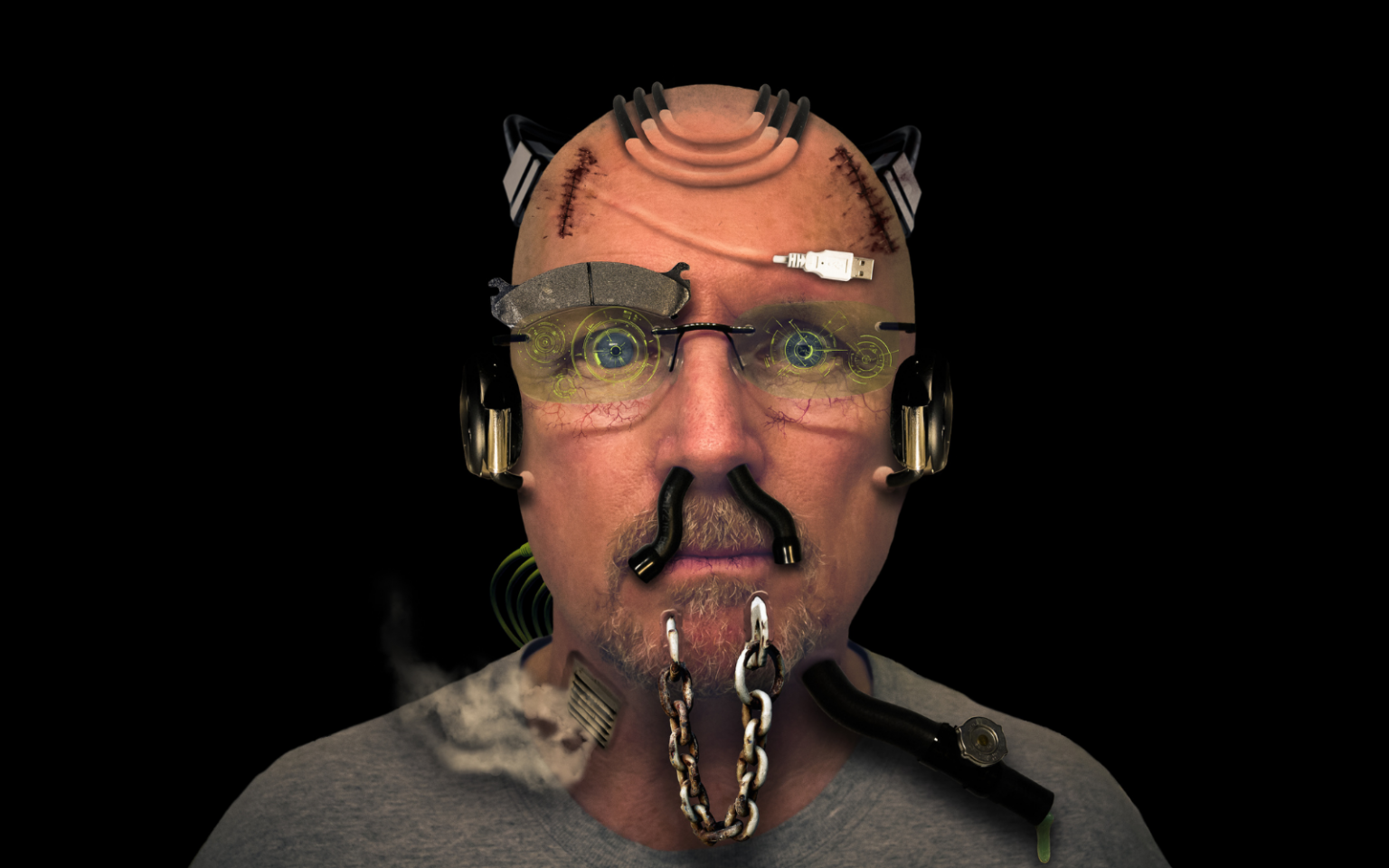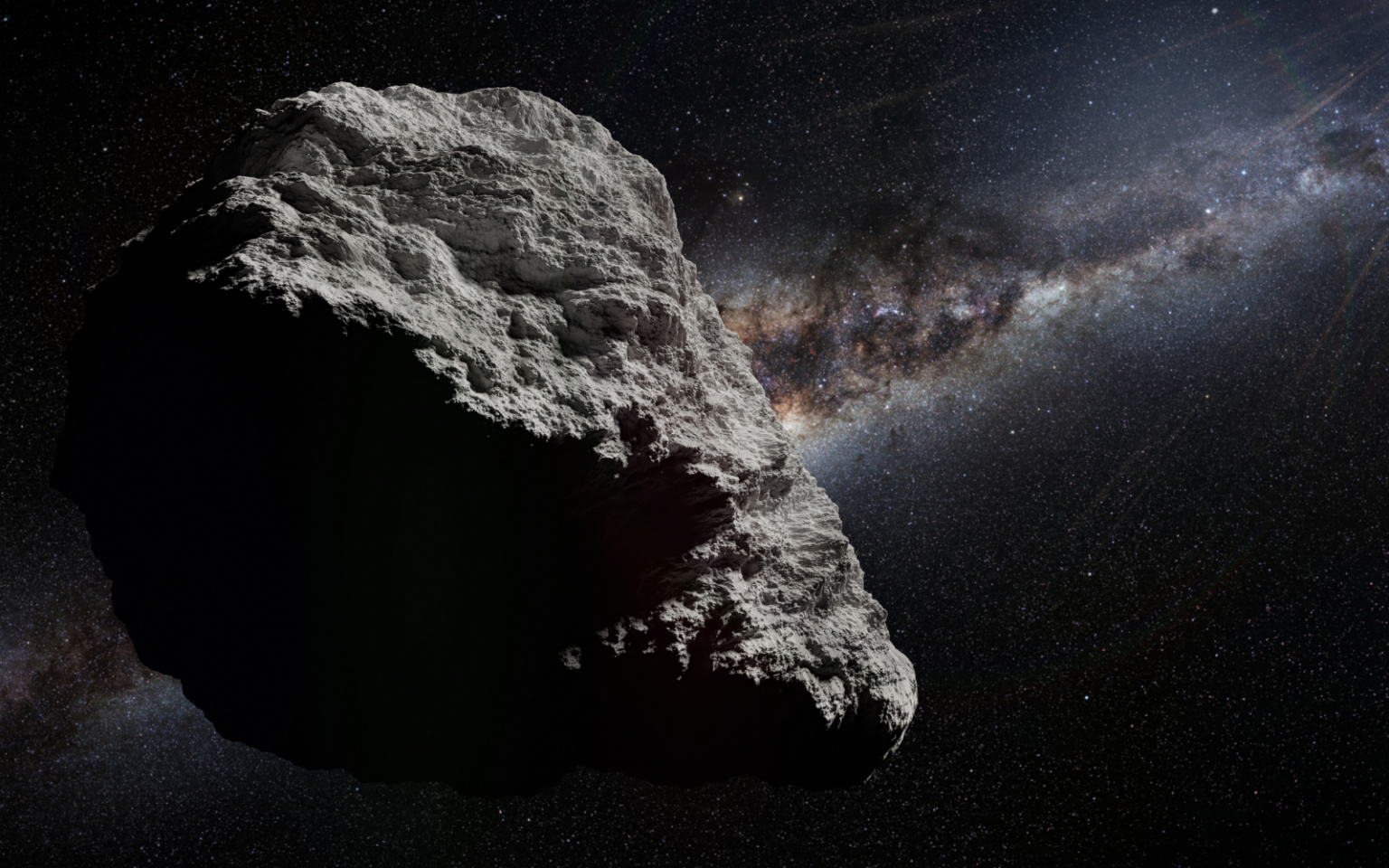Neil Harbisson is the world’s first officially recognised human cyborg, having had a device installed in his head to enable him to “hear” colours in the early 2000s. He is the subject of Cyborg: A Documentary, the first full-length film by London-based director Carey Born. This thought-provoking work, which launched in UK cinemas on September 20, not only chronicles Harbisson’s unique journey but also explores the philosophical and ethical questions surrounding human augmentation. Born without the ability to see any colours, the Catalan-born artist’s life took an extraordinary turn when he decided to augment his sensory experience. He used an…
Author: The Conversation
Earth is going to have its very own mini-moon from September 29 until November 25. The regular Moon’s new, temporary friend is 2024 PT₅, an asteroid captured from the Arjuna asteroid group (called the “Arjunas”). Our new mini-moon is approximately 10 metres in diameter and will be captured by Earth’s gravity for 57 days. It’s small and faint, so it won’t be visible by the eye or with small telescopes, but will be visible to larger telescopes. Newly-discovered #asteroid 2024 PT5 is about to undergo a “mini-moon event” when its geocentric energy becomes negative from September 29 – November 25.https://t.co/sAo1qSRu3J pic.twitter.com/pVYAmSbkCF…
On September 4 2024, astronomers discovered an asteroid, one metre in diameter, heading towards Earth. The space rock would burn up harmlessly in the atmosphere near the Philippines later that day, officials announced. Nevertheless, it produced a spectacular fireball that was shared in videos posted on social media. The object, known as RW1, was only the ninth asteroid to be spotted before impact. But what of much bigger, more dangerous asteroids? Would our warning systems be able to detect all the asteroids that are capable of threatening us on the ground? Asteroid impacts have influenced every large body in the solar system. They…
South Africa’s Department of Mineral Resources and Energy was split in two after the 2024 general elections: Electricity and Energy and Mineral and Petroleum Resources. Part of the reason was to prevent conflicts of interest. Before the 2024 elections, the transition to renewable energy was at odds with the development of the minerals sector, including fossil fuels like coal. Historically, fossil fuels have played a major role in the South African economy, with coal-fired power stations supplying 85% of South Africa’s electricity. The Department of Mineral Resources and Energy was part of the minerals-energy complex – a relationship between mining, energy, the department and private capital set up in the 1800s.…
Last month, OpenAI came out against a yet-to-be-enacted Californian law that aims to set basic safety standards for developers of large artificial intelligence (AI) models. This was a change of posture for the company, whose chief executive Sam Altman has previously spoken in support of AI regulation. The former nonprofit organisation, which shot to prominence in 2022 with the release of ChatGPT, is now valued at up to US$150 billion. It remains at the forefront of AI development, with the release last week of a new “reasoning” model designed to tackle more complex tasks. The company has made several moves in recent months suggesting a growing…
When German journalist Martin Bernklau typed his name and location into Microsoft’s Copilot to see how his articles would be picked up by the chatbot, the answers horrified him. Copilot’s results had asserted that Bernklau was an escapee from a psychiatric institution, a convicted child abuser and a conman preying on widowers. For years, Bernklau had served as a court reporter and the artificial intelligence (AI) chatbot had falsely blamed him for the crimes he had covered. The accusations against Bernklau are not true, of course, and are examples of generative AI “hallucinations”. These are inaccurate or nonsensical responses to a prompt provided by…
South Africa is a water-scarce country. In other words, it has an excess of demand over available supply. It also has low water security – the ability to ensure sustainable access to good quality water. The country’s economic hub and biggest population centre, Gauteng province, has suffered sequential water crises that have been a blend of both factors, combined with some others, such as a lack of maintenance. Caroline Southey from The Conversation Africa put questions to Craig Sheridan, the director of the Centre in Water Research and Development at the University of the Witwatersrand, about the creation of a…
Instagram has announced third-party augmented reality (AR) filters will no longer be available on its apps as of January 2025. This means more than two million user-made filters offered across WhatsApp, Facebook and, most notably, Instagram will disappear. Filters have become a mainstay feature on Instagram. The most viral of these – which often involve beautifying the user’s appearance – are created by users themselves via the Meta Spark Studio. However the use of beautifying AR filters has long been connected to worsened mental health and body image problems in young women. In theory, the removal of the vast majority of Instagram filters should signal…
Many human activities release pollutants into the air, water and soil. These harmful chemicals threaten the health of both people and the ecosystem. According to the World Health Organization, air pollution causes an estimated 4.2 million deaths annually. Scientists are looking into solutions, and one potential avenue is a class of materials called photocatalysts. When triggered by light, these materials undergo chemical reactions that initial studies have shown can break down common toxic pollutants. I am a materials science and engineering researcher at the University of Tennessee. With the help of robots and artificial intelligence, my colleagues and I are making and testing new photocatalysts…
As many countries debate the merits of banning kids under 14 from social media, Meta has announced a significant “reimagining” of teenagers’ experience of Instagram. These new “Teen Accounts” will be set to private by default, have the maximum content and messaging restrictions possible, pause notifications at night, and add new ways for teens to indicate their content preferences. Importantly, for kids under the age of 16, changing these default settings will now require parental permission. The move, touted as giving “peace of mind” for parents, is a welcome step – but parents and guardians should use it to talk to…










